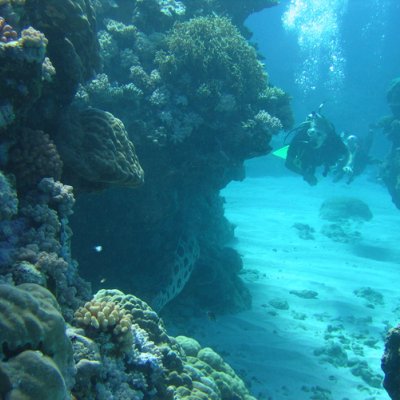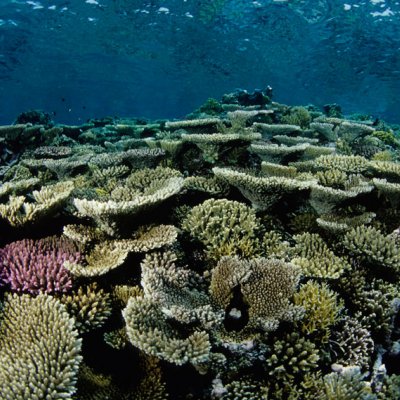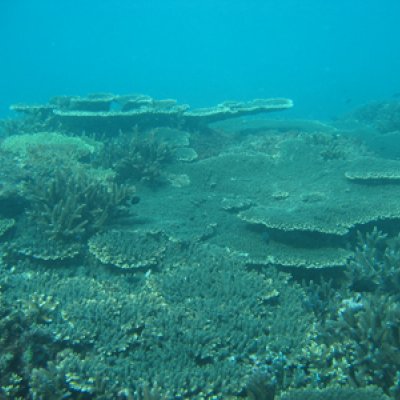Warming oceans will cause profound changes in the global distribution of marine species, new research shows.
26 August 2015An international scientific team has used a 23-million-year fossil record to calculate which marine animals and ecosystems are most at risk of extinction today.
1 May 2015Overfishing, pollution and declining water quality have all taken their toll on the Great Barrier Reef, where coral cover has disappeared over the past 25 years.
15 January 2015There is growing scientific concern that corals could retreat from equatorial seas and oceans as the Earth continues to warm, a team of international marine researchers warned today.
11 December 2012Life in the world’s oceans faces far greater change and risk of large-scale extinctions than at any previous time in human history, a team of the world’s leading marine scientists has warned.
21 August 2012Fish and other sea creatures will have to travel large distances to survive climate change, international marine scientists have warned.
4 November 2011Climate change and acidifying ocean water are likely to have a highly variable impact on the world’s coral reefs in space, time and diversity, according to an international team of coral scientists, including UQ researchers.
21 July 2011Leading scientists and marine managers have called for a greater national effort to protect vital 1000-kilometre stretches in the middle of Australia’s eastern and western coastlines.
22 November 2010Corals right out on the exposed edges of the world’s great coral reef zones may hold an important clue to the survival of coral ecosystems facing intensifying pressure from human activities and climate change.
17 June 2010

